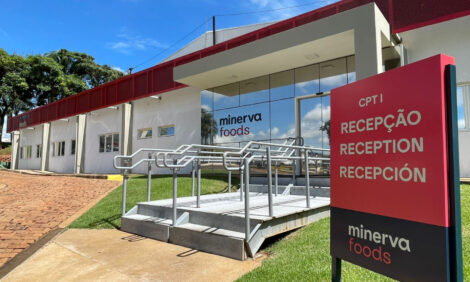



Environmental Defense Fund calls for action on dairy sector methane emissions
EDF, Danone, and Bel publish open letter to ag commissionerIn an open letter to European Commissioner for Agriculture and Food Christophe Hansen, Environmental Defense Fund (EDF), Danone, and Bel Group encouraged the Commission to prioritise the reduction of methane emissions in the dairy sector as part of its upcoming Vision for Agriculture and Food, according to a press release issued by EDF.
Tackling methane emissions represents one of the most powerful opportunities for sustainability progress, EDF said, yet it remains overlooked compared to other areas of sustainability. Methane is a greenhouse gas that is over 80 times more potent than carbon dioxide in trapping heat but has a shorter atmospheric lifespan of about 12 years compared to carbon dioxide, which can persist for centuries. However, despite the substantial short-term benefits that methane reductions could bring to the climate, EU policy has yet to meaningfully address methane emissions in agriculture, the largest emitting sector.
EDF, Danone, and Bel Group recognise the challenges faced by farmers in adopting new practices and technologies and call on the Commission to provide clear guidance and financial support to make the transition to sustainable dairy farming easier and more affordable.
"Far too often, when sustainability policies are developed, addressing methane is overshadowed by other areas of action," said Justin Zahra, EDF senior director for the EU agriculture program. "As a result, progress on methane reduction in agriculture is neither prioritised nor advanced sufficiently. Without a specific callout to methane in the upcoming Vision for Agriculture and Food, we risk letting this critical opportunity slip through the cracks once again."
“Solutions for reducing methane emissions in the dairy sector already exist, but we need decisive and coherent action from policymakers to accelerate their uptake," Zahra continued.
Danone echoed this call for action. “There are a range of agricultural practices and technologies available for dairy farmers to consider — from improved herd management, nutrition & feed, and manure management — to reduce methane emissions on farm, but we need a variety of financial support systems to meet the diverse needs of dairies across the region," said Chris Adamo, Head of Global Sustainability Impact and B Corp at Danone. "Additionally, public private partnership opportunities create a leverage opportunity for government to incentivise the private sector to partner with their farming supply suppliers and accelerate the transition towards sustainable agriculture.”
Similarly, Simon Bonnet, Global Milk Upstream & Sustainability Director for Bel Group emphasised that reducing environmental impact requires collective action across the value chain. “To drive meaningful change at scale, we rely on the support of the EU to create an enabling framework that fosters collaboration, innovation, and measurable progress," she said. "As part of Bel’s objective to reducing our environmental footprint and that of our ecosystem by 50% by 2035, our commitment to the DMAA reflects our dedication to transparency, rigorous progress tracking, and setting a strong example of industry leadership."
The open letter outlines three key questions for the Commission to address in its Vision:
- How will the Commission support the scaling up of existing solutions for methane reduction in dairy farming, overcoming potential challenges related to state aid and ensuring their affordability for farmers
- How will the Commission prioritise and direct financing towards methane reduction initiatives within the agrifood chain, leveraging existing mechanisms such as the European Investment Bank and the European Institute of Innovation & Technology?
- What steps will the Commission take to streamline bureaucratic processes and reduce red tape for farmers implementing sustainable manure management and feed optimisation techniques?
EDF and Danone, and Bel Group stress that, by working collaboratively and in farmer-centric ways, policymakers, farmers, and businesses can create a more sustainable and resilient dairy sector that benefits both the environment and the economy.
The full text of the open letter can be found here.



